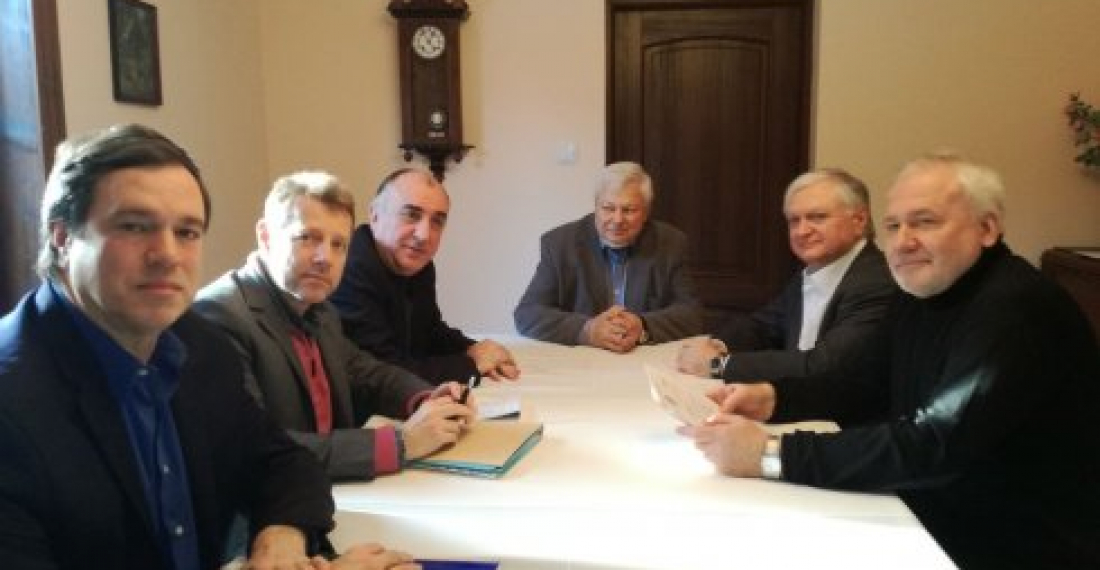The Foreign Ministers of Armenia and Azerbaijan are meeting in the Polish city of Krakow in the latest effort to resolve the Nagorno-Karabakh conflict. The meeting is being facilitated by diplomats from France Russia and the United, the three countries that chair the OSCE Minsk Group that is mandated by the international community to help the sides resolve the conflict. The meeting is also being attended by Ambassador Andzrei Kasprzyk, the representative of the Italian Chairmanship of the Organisation for Security and co-operation in Europe (OSCE).
There is hope that the meeting may pave the way for another presidential summit between the two countries on the issue. reports on the meeting are still coming in
source: commonspace.eu
photo: The Foreign Ministers of Armenia and Azerbaijan and international diplomats in Krakow on 18 January 2018







